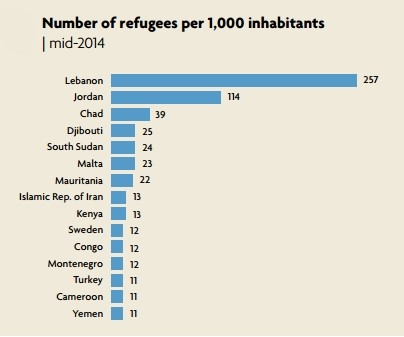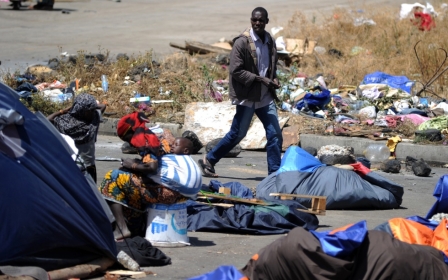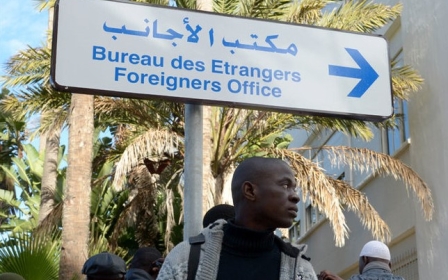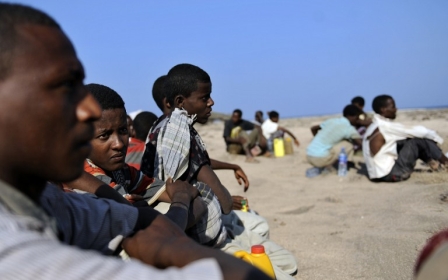Middle East now home to world's largest number of refugees
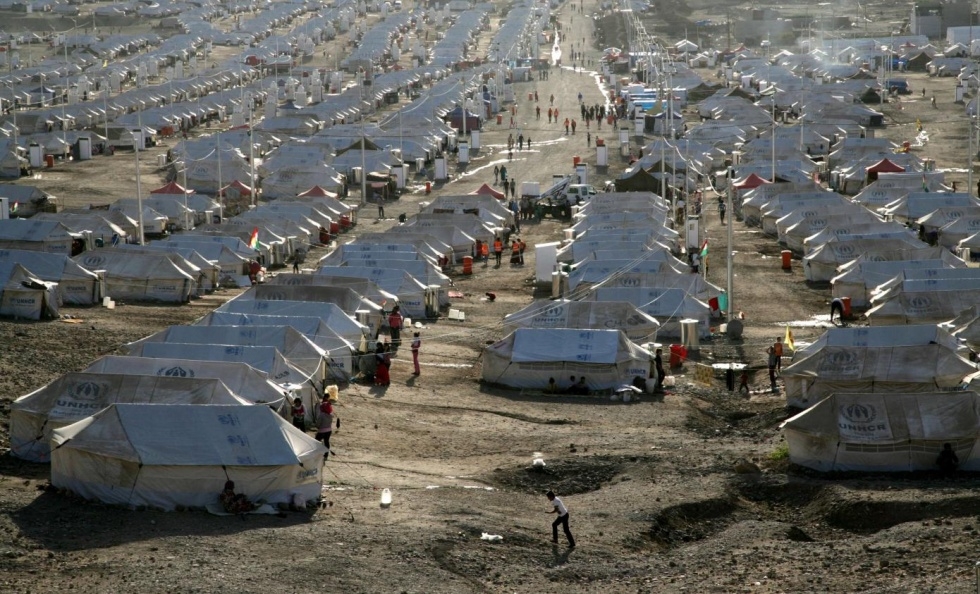
The Middle East and North Africa now hosts the world’s largest number of refugees, a new UN report found on Wednesday.
The conflict in Syria meant the region edged ahead of Asia and the Pacific to become the world’s largest provider of sanctuary to displaced people.
“In 2014 we have seen the number of people under our care grow to unprecedented levels,” the UN’s High Commissioner for Refugees Antonio Guterres said in a statement.
“As long as the international community continues to fail to find political solutions to existing conflicts and to prevent new ones from starting, we will continue to have to deal with the dramatic humanitarian consequences”.
Displaced people now make up over a quarter of Lebanon’s inhabitants.
The majority of the country’s roughly 1.2 million refugees have fled the three-year conflict in neighbouring Syria, although Lebanon also remains host to a sizable population of around half a million displaced Palestinians.
Lebanon has been struggling to cope with the ever-growing numbers of Syrians seeking shelter across the border, and last week began requiring refugees to apply for visas before entering the country.
Tensions between the immigrant population and Lebanese nationals, some of whom complain of rising rents and increasing unemployment, spilled over into violence last month, when gunmen attacked a refugee camp in northern Lebanon, setting fire to tents in the makeshift settlement.
Lebanon is not alone in facing huge numbers of war-fleeing refugees in 2014.
By September, the UN found that 250,000 people had fled violence in Libya, four months after intense fighting between rival armed groups began to rock the country.
That number is now expected to have risen much higher.
Tunisia, which shares a 459-kilometre border with Libya, warned back in July that it would not be able to cope with a huge influx of refugees fleeing the fighting.
"Our country's economic situation is precarious, and we cannot cope with hundreds of thousands of refugees," then-Foreign Minister Mongi Hamdi said.
The UN refugee agency explicitly called on Wednesday for the international community to do more to aid both displaced people and the communities hosting them.
"The economic, social and human cost of caring for refugees and the internally displaced is being borne mostly by poor communities, those who are least able to afford it,” Gutteres said.
“Enhanced international solidarity is a must if we want to avoid the risk of more and more vulnerable people being left without proper support”.
New MEE newsletter: Jerusalem Dispatch
Sign up to get the latest insights and analysis on Israel-Palestine, alongside Turkey Unpacked and other MEE newsletters
Middle East Eye delivers independent and unrivalled coverage and analysis of the Middle East, North Africa and beyond. To learn more about republishing this content and the associated fees, please fill out this form. More about MEE can be found here.


